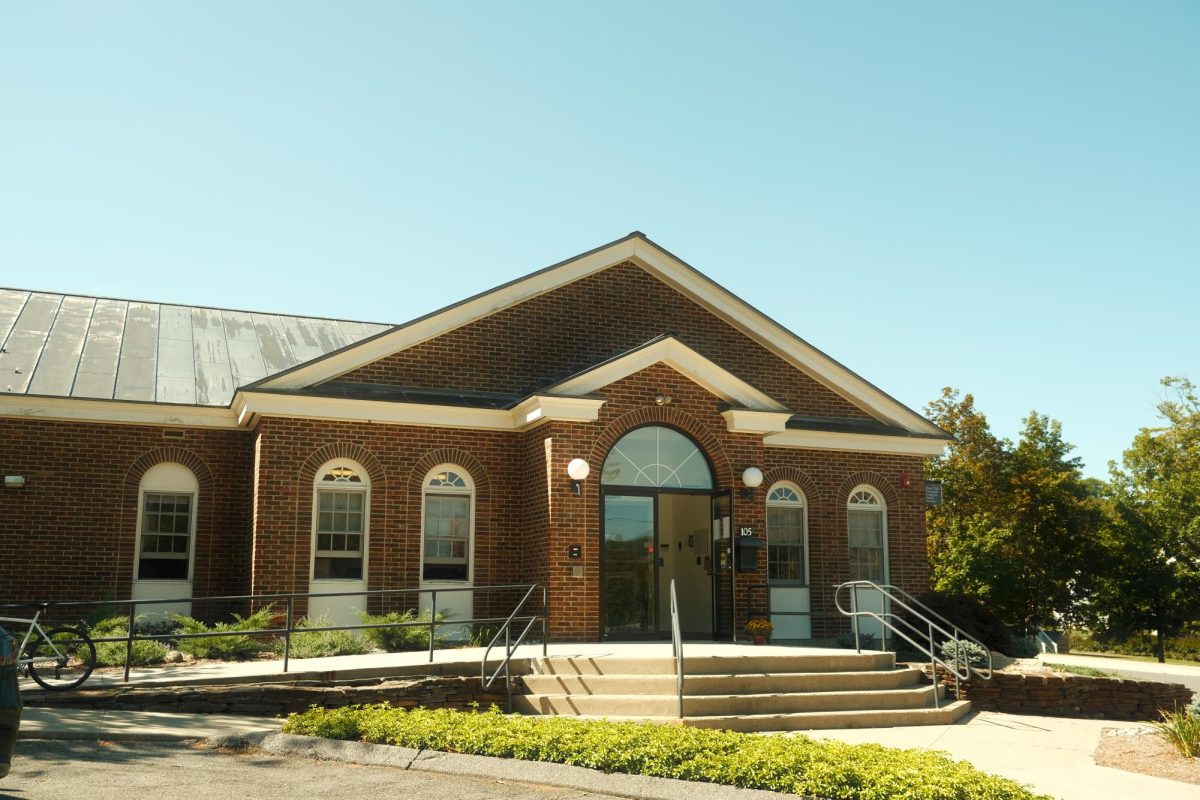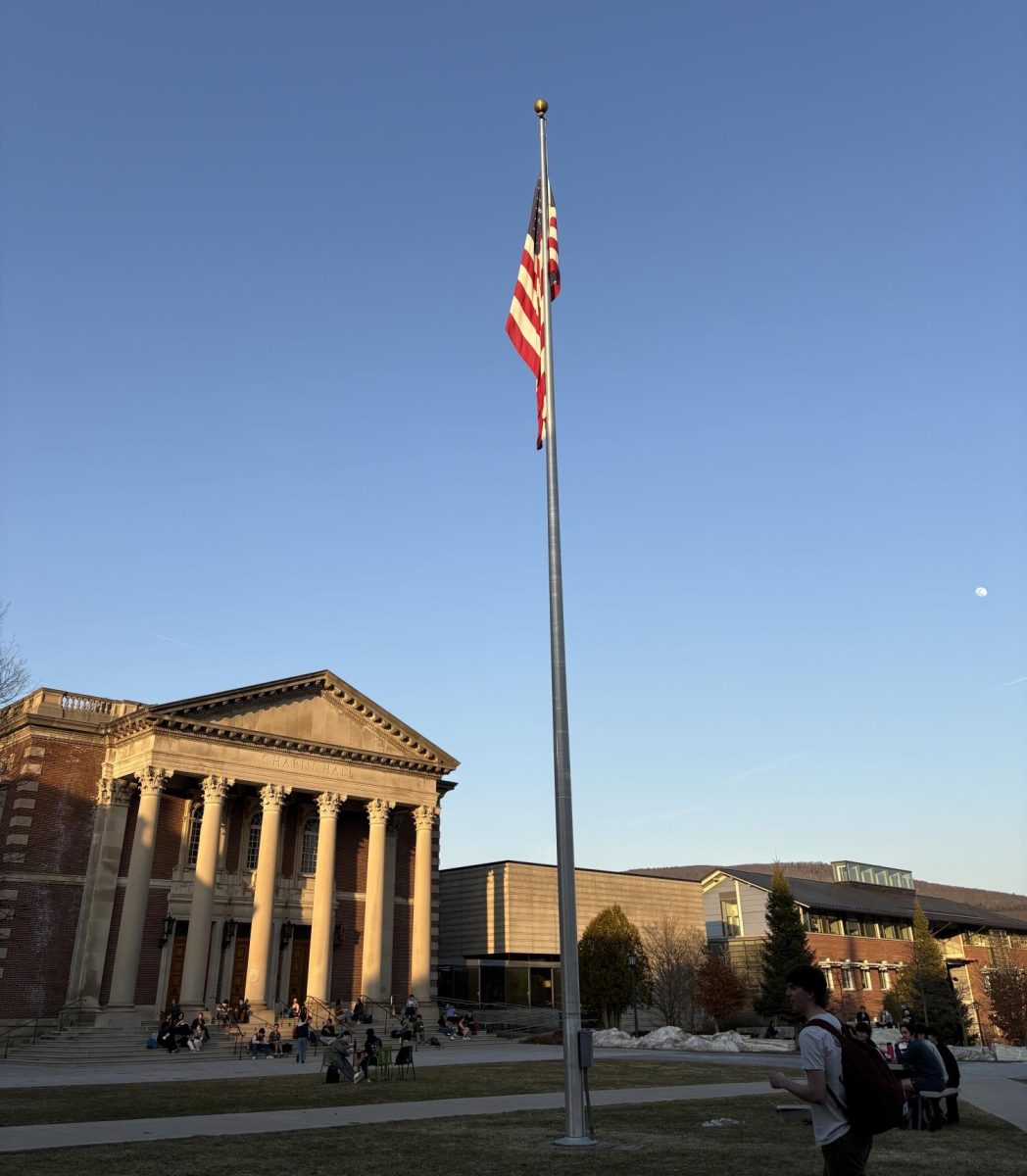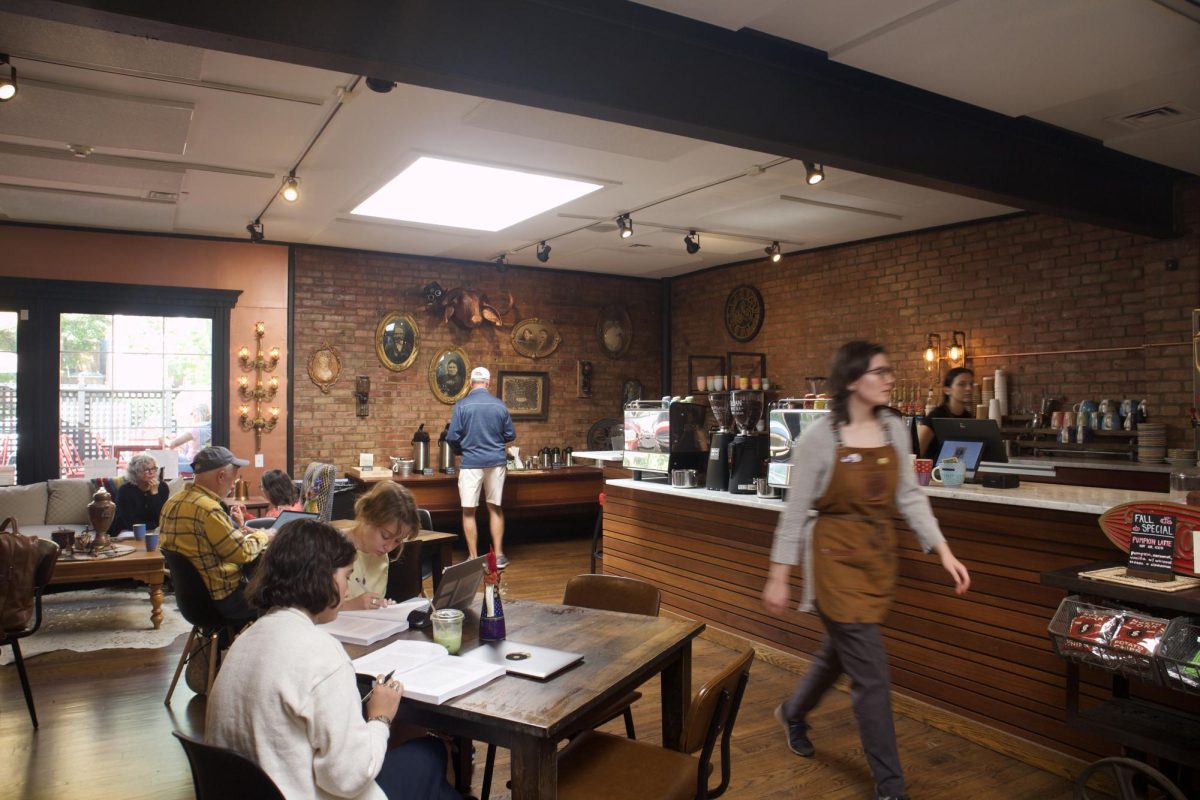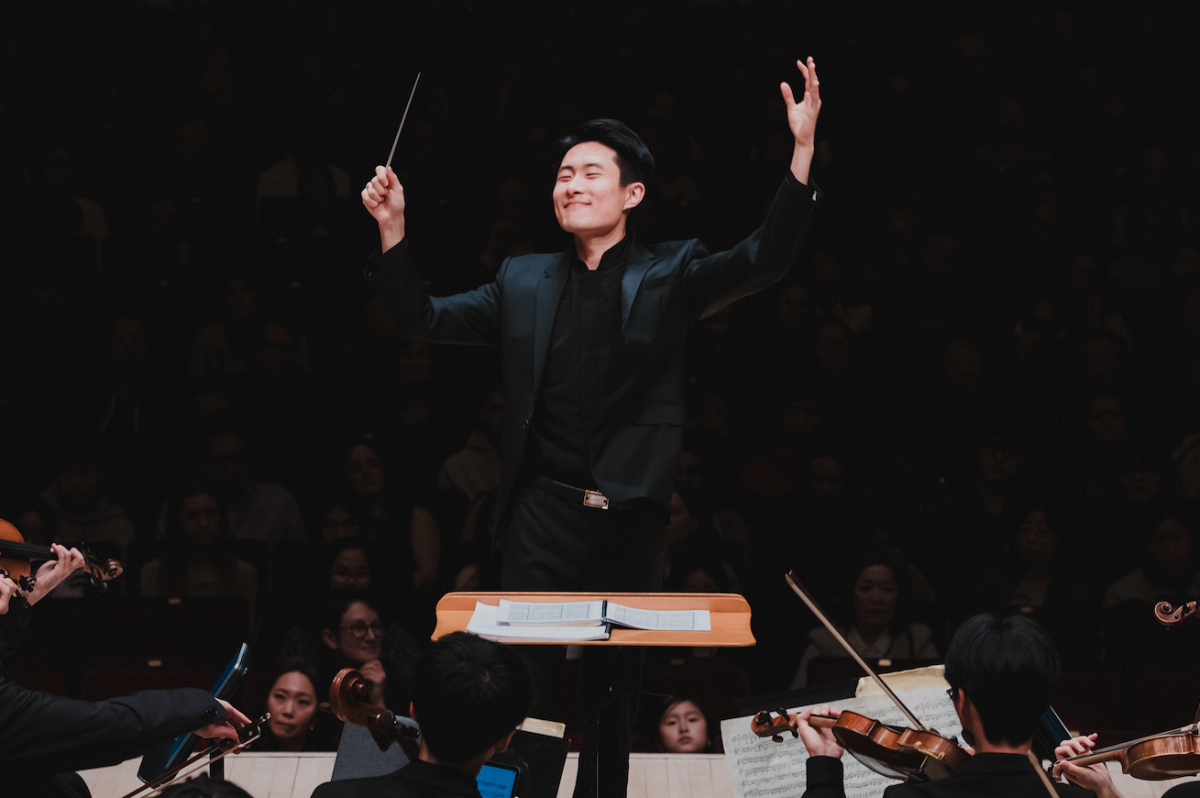How best to do good: Through discussion and debate, Williams College Effective Altruism seeks answers
November 9, 2022
It’s a lovely fall Sunday on campus. The occasional breeze rustles leaves across the pavement, intermittent clouds dapple the afternoon light, and behind the glass of a fourth-floor conference room in Sawyer library, Nachman Kaul-Seidman ’25 is talking about nuclear war.
Speaking to a room of five of his peers, Kaul-Seidman has posed a grim hypothetical, borrowed from the work of British philosopher Derek Parfit. Consider two scenarios — one where 99 percent of humanity has been wiped out by nuclear warfare and one where said nuclear warfare has killed everyone. The difference between the two, he contends, is larger than just a 1-percent difference in the amount of people killed. The situation where humanity has been wholly nuked off the face of the Earth is far, far worse — because it forecloses any chance of future humans existing and leading good lives.
Kaul-Seidman leads one of the weekly discussion groups put on by Williams College Effective Altruism, a student-run organization that hosts introductory and in-depth “fellowships” for students at the College to discuss and learn about effective altruist thinking. Often abbreviated EA by those involved with it, the effective altruism movement is a broadly defined group of researchers and thinkers who seek to determine — and put into practice — ways to do the most good given limited resources.
Even if you’re not directly familiar with EA, you might have encountered it through the nonprofit GiveWell, which evaluates the effectiveness of charitable donations per dollar, or Vox’s “Future Perfect” section, which is dedicated to news coverage through an effective-altruist lens.
“What we’re trying to do is be able to compare different sorts of things we can do in terms of how much impact we can have,” Williams EA co-President Alex Kim ’24 told the Record. “This might take a lot of forms. It might be going into pandemic prevention, because you think pandemics are pretty likely to hurt a lot of people. It might be going into a high-paying job and donating a lot of your money. Or it might be going into animal welfare or climate change policy or anything like that.”
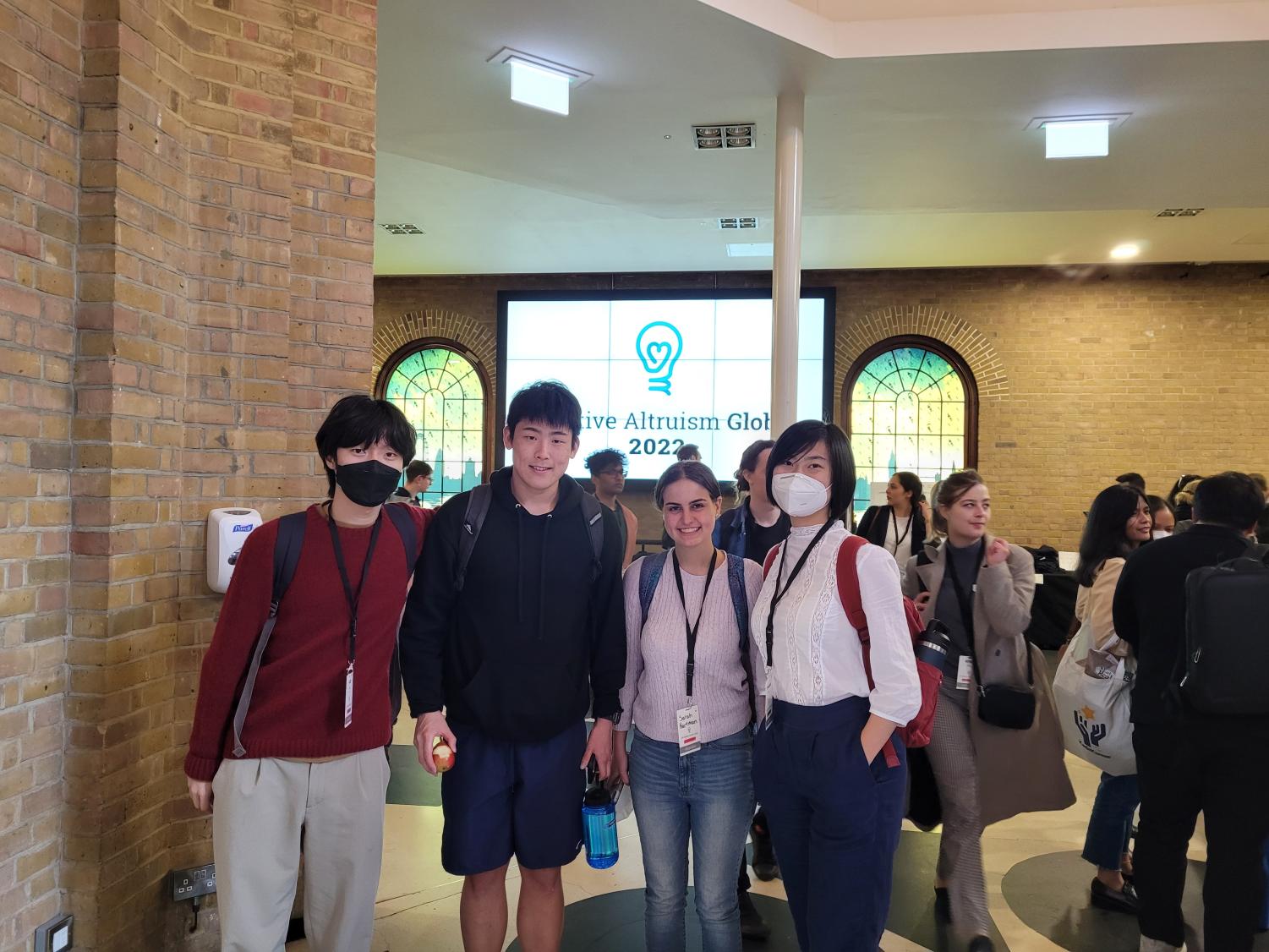
This process of comparison and evaluation takes place at club events, in online forums, and at EA conferences, which some of the club’s members have attended. Thanks to support from the Centre for Effective Altruism, an English charity that funds a wide range of EA organizations, the club has sent roughly 100 free books on EA to students at the College. Most central to Williams Effective Altruism’s current work, though, are the three discussion groups it organizes as part of its fellowships. Despite the fact that this extracurricular activity comes without free food — and involves a syllabus — attendance has been steady.
“What’s cool, I think, is that all of this is completely voluntary,” Kim said. “There’s no college credit. There’s no financial incentive to show up. There’s no incentive for us to do it either, except for the fact that we do care about this sort of thing and applying it to our lives. We run it, and they come because they’re all genuinely interested.”
As I sat in that room in Sawyer, listening to the group discuss various existential risks to humanity and how to reduce their chances of coming true, it became clear how effective altruism can challenge one’s intuitions. The premises are deeply familiar — we all, assumedly, want to help people, and we may as well do so efficiently — but the conclusions they reach can sometimes challenge typical notions of what “doing good effectively” might look like. In the case of effective altruists who seek to minimize the chances of existential risks (such as nuclear war, biological weapons, or rogue artificial intelligence), this may mean dedicating one’s resources or career towards shaving off a miniscule percentage from an already-small probability — and, in doing so, effectively saving many lives — as opposed to solving smaller but more tangible problems. A drive toward efficiency may lead Americans to forgo donating to local causes, opting instead to donate to charities operating in less wealthy countries where a dollar goes further.
“We ask questions that many people have probably asked themselves while perhaps choosing a career in teaching, deciding to volunteer at a soup kitchen, or donating to wildlife conservation efforts,” Harper Treschuk ’26, a participant in the club’s “introductory fellowship,” geared towards students with no prior knowledge of EA, wrote to the Record. “We all know that we have finite time and resources to give, and in our highly connected and globalized world, there are seemingly infinite ways to help others. Effective Altruism tries to bring together those two realities.”
Elena Deegan-Krause ’26, who is a member of the club’s “in-depth fellowship,” said that Williams Effective Altruism’s discussion groups helped her interrogate the differences between one’s intentions and one’s impacts. “I may cause a lot of harm by blindly plugging my values, even if they are good values, into an untested model of how things affect each other in the real world,” she wrote to the Record.
Some strands of effective altruist thinking focus on less mainstream topics. Longtermism — one of the focuses of the discussion I sat in on — is concerned with the wellbeing of future people. (Williams EA recently held a virtual Q&A session with one of longtermism’s leading proponents, philosopher and author Will MacAskill.)
“I’ve also come to appreciate that some people take a different tact in their advocacy for future generations [by] directly and proactively researching artificial intelligence, for instance, because they think its misuse poses a greater threat to human existence and civilization than the problems we’re already facing today,” Treschuk continued.
Kim — who got involved with Williams EA last year as a participant in the introductory fellowship — said that effective altruism has provided them with a useful framework for living a better life.
“I think it’s really changed the way I see the world, in that immediate, action-oriented sort of way,” they said. “I need to really think about my actions before I do them and think about what’s important in life.”



